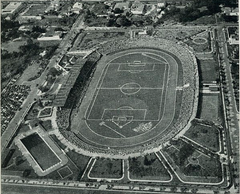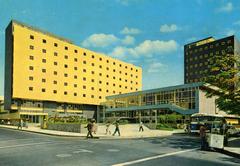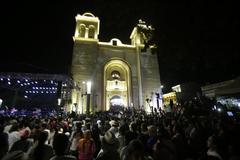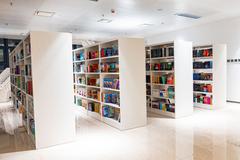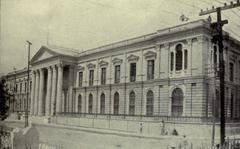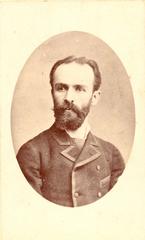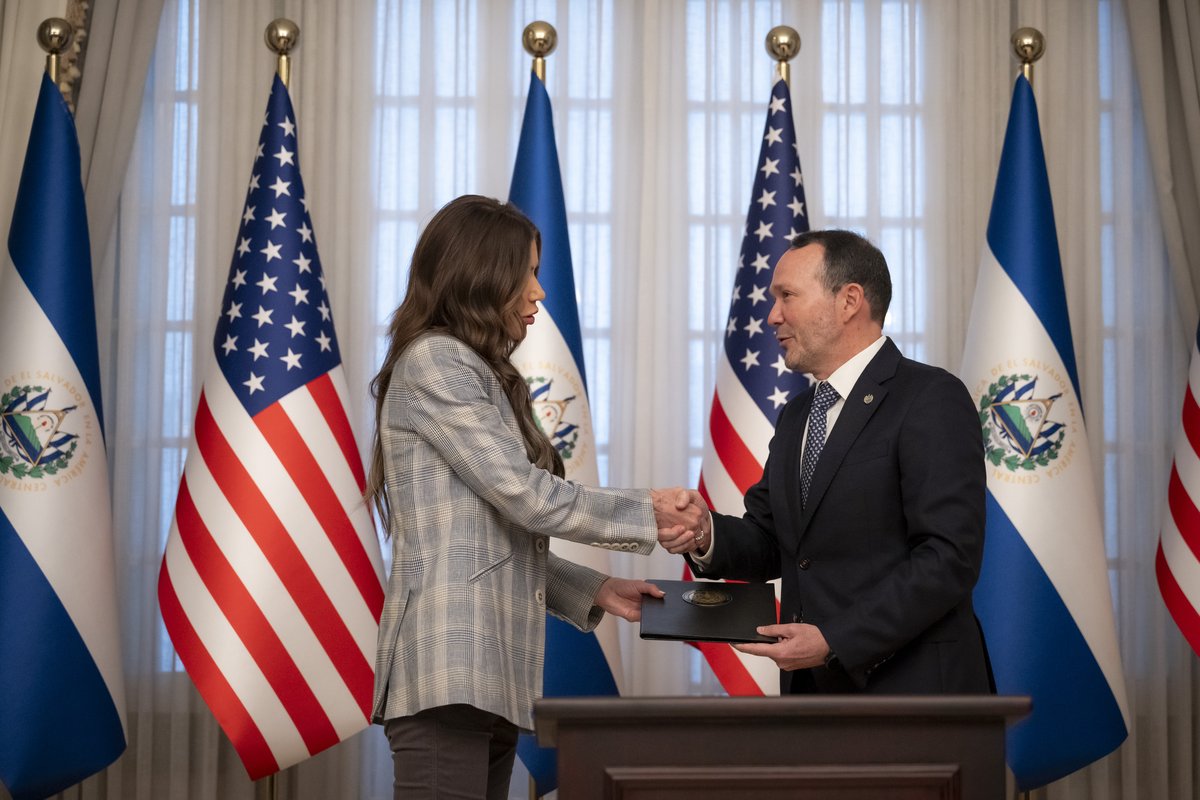
Casa Presidencial San Salvador: Visiting Hours, Tickets, and Historical Significance
Date: 04/07/2025
Introduction
Casa Presidencial in San Salvador, El Salvador, is a key symbol of the nation’s political evolution, architectural achievement, and cultural identity. Initially established in 1911 with the acquisition of the Quinta Natalia estate, the Antigua Casa Presidencial has witnessed major national milestones and served as the presidential residence for much of the 20th century. Today, it offers visitors a unique window into Salvadoran history—combining ornate architecture with stories of resilience through earthquakes, political transitions, and cultural renewal. This comprehensive guide delivers essential details on visiting hours, tickets, accessibility, and nearby attractions, along with historical and architectural context to enrich any visit. For official updates, consult resources like the Presidencia de la República de El Salvador, Guanacos.com, and Ministerio de Cultura.
Table of Contents
- Introduction
- Origins and Evolution of Casa Presidencial
- Political and Historical Significance
- Architectural Highlights
- Restoration and Relocation
- Multiple Casa Presidencial Sites in San Salvador
- Visitor Information
- Visuals and Media
- FAQs
- Conclusion
- References
Origins and Evolution of Casa Presidencial
The establishment of Casa Presidencial began in 1911, when President Manuel Enrique Araujo secured the Quinta Natalia estate in San Jacinto, next to the National Zoological Park. Construction of the original building, known as “La Casona,” was delayed by the earthquakes of 1917 and 1919 but ultimately completed in 1921. It was inaugurated for official presidential use in 1924 (Guanacos.com).
Over the decades, Casa Presidencial has served as both a residence and the operational center for El Salvador’s presidents, adapting to the nation’s changing political landscape (Presidencia.gob.sv).
Political and Historical Significance
Casa Presidencial has been the backdrop for pivotal national events. It hosted state ceremonies, diplomatic meetings, and decisions that shaped Salvadoran history. After the 1931 coup, the building was repaired and continued to function as the seat of executive power. Through periods of unrest and civil war, it remained a symbol of national stability and governance (Guanacos.com, Evendo.com).
Architectural Highlights
Designed by French engineer Louis Fleury, the Antigua Casa Presidencial is one of Central America’s finest examples of Art Nouveau (Arte Modernista) architecture. The structure features two levels, grand salons, asymmetrical layouts, and elaborate ornamentation. Notable interiors include paintings by Chilean artist Luis Vergara Ahumada, guided by historian Jorge Lardé y Larín. Decorative elements like stained glass, intricate woodwork, and imported materials reflect both Salvadoran ambition and international influences (WorldHouseInfo.com).
The formal gardens and courtyards have historically hosted official receptions and public gatherings, reinforcing the site’s importance as a symbol of national identity.
Restoration and Relocation
Earthquakes have heavily influenced Casa Presidencial’s history. The 2001 earthquake caused extensive damage, prompting the relocation of presidential offices to a new complex at Alameda Manuel Enrique Araujo, No. 5500, Colonia San Benito. The historic San Jacinto building was repurposed as a cultural and public venue, preserving its architectural and historical legacy (Presidencia.gob.sv).
Multiple Casa Presidencial Sites in San Salvador
San Salvador now features three primary Casa Presidencial locations:
- Avenida Masferrer: The current official presidential residence.
- San Jacinto (Antigua Casa Presidencial): The historic building, now open to the public as a cultural site.
- Alameda Manuel Enrique Araujo, No. 5500, Colonia San Benito: The modern office complex for presidential administration (Presidencia.gob.sv).
Visitor Information
Visiting Hours and Tickets
-
Antigua Casa Presidencial:
- Open Tuesday to Sunday, 9:00 AM – 5:00 PM.
- Closed Mondays and public holidays.
- Admission is free for Salvadoran residents.
- International visitors pay a nominal fee (approx. $1 USD).
- No advance booking required for general visits (Guanacos.com, Ministerio de Cultura).
-
Modern Casa Presidencial (San Benito):
- Not open for casual public visits.
- Guided tours are occasionally offered during special events, requiring advance registration (Presidencia.gob.sv).
Getting There
- Location: End of Calle México and Segunda Avenida Sur, San Jacinto neighborhood, San Salvador (Ministerio de Cultura).
- Transport: Taxi, rideshare apps, or local buses heading toward San Jacinto. Parking is limited; public transport or organized tours are recommended.
Accessibility
- Main public areas are wheelchair-accessible, though some historic sections have limited access.
- Visitors with special needs should contact the site in advance for accommodations.
Guided Tours and Events
- Guided tours are available in Spanish, with limited English-language options upon request.
- Tours cover grand salons, gardens, and exhibitions.
- Special events and rotating exhibitions are hosted throughout the year—check the official website for schedules.
Nearby Attractions
- Parque Zoológico Nacional: Family-friendly zoo nearby.
- San Salvador Cathedral: Iconic religious and historic site.
- National Palace: Architectural and governmental landmark.
- Museo Militar: Military history museum in El Zapote barracks.
- Zona Rosa and Parque Bicentenario: Dining, shopping, and green spaces within easy reach (Globleo.com).
Visuals and Media
- Exterior and interior photography is allowed in most areas, except during restricted exhibitions or in sensitive sections.
- Official images and virtual tours are available on the Ministry of Tourism and Ministry of Culture websites.
Frequently Asked Questions (FAQs)
Q: What are the Antigua Casa Presidencial visiting hours?
A: Tuesday to Sunday, 9:00 AM to 5:00 PM.
Q: Is there an entrance fee?
A: Free for Salvadoran residents; international visitors typically pay about $1 USD.
Q: Are guided tours available?
A: Yes, primarily in Spanish; limited English tours on request.
Q: Is the site wheelchair accessible?
A: Main areas are accessible; some historic sections may have limited access.
Q: How do I get there?
A: Located in San Jacinto; accessible by taxi, rideshare, or public bus.
Q: Can I visit the current presidential office?
A: Only during special events with prior registration (Presidencia.gob.sv).
Conclusion
Casa Presidencial, both in its historic San Jacinto form and its current administrative incarnation, is a cornerstone of Salvadoran heritage. The Antigua Casa Presidencial captivates visitors with its Art Nouveau architecture, rich political history, and vibrant cultural programming. Free admission and accessible visiting hours make it an essential stop for anyone exploring San Salvador. To enhance your experience, combine your visit with nearby sites and consult official channels for the latest updates on special events and tours. Download the Audiala mobile app and follow our platforms for real-time news, tips, and exclusive content on Salvadoran culture and history.
References
- Presidencia de la República de El Salvador – Historia de Casa Presidencial
- Guanacos.com – Antigua Casa Presidencial
- Ministerio de Cultura – Antigua Casa Presidencial
- Everything El Salvador – Things to Know
- We Will Nomad – El Salvador Destinations
- Lonely Planet – Travel Tips
- Globleo.com – Top 50 Historical Places in El Salvador
- WorldHouseInfo.com – Presidential House
- Evendo.com – Casa Presidencial de El Salvador











